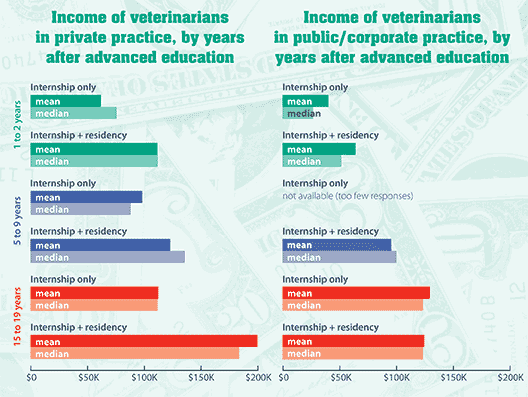Pluses and minuses
The latest veterinary salary data show it usually pays to do a residency, but not in every instance. According to the 2012 AVMA Biennial Economic Survey, private practitioners completing a residency reported median incomes of $148,000 compared with $88,000 for those who completed only an internship and those with only a veterinary degree.

Meanwhile, public and corporate practice veterinarians who completed a residency reported median incomes of $124,000 compared with $100,000 for those who completed only an internship and $112,000 for those with only a veterinary degree.

Looking over time at the income of veterinarians who had completed internships and residencies, one can see a trend of income increasing with experience.

The survey authors note, however, that comparing the median income of veterinarians who have completed internships with those who have not completed them may not be a valid way to determine the value of completing an internship, because a higher proportion of respondents who had completed internships also had less experience.